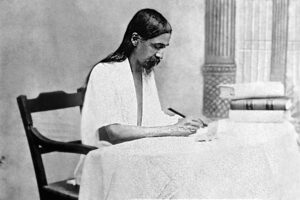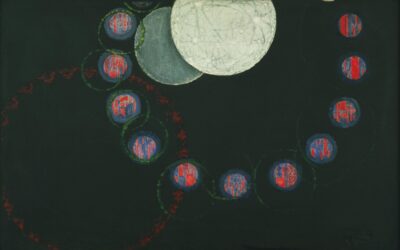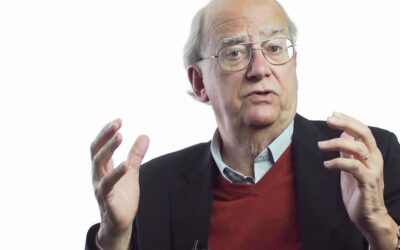Who was Sri Aurobindo?
“There is nothing mind can do that cannot be better done in the mind’s immobility and thought-free stillness.
When mind is still, then truth gets her chance to be heard in the purity of the silence.”
— Sri Aurobindo

Sri Aurobindo, an Indian philosopher and yogi, and Carl Jung, a Swiss psychiatrist, were two of the most influential thinkers of the 20th century. Despite coming from different cultural backgrounds and intellectual traditions, their ideas about the nature of consciousness and the human psyche have remarkable parallels and implications for the fields of psychology and psychotherapy.
Aurobindo’s Philosophy and the Evolution of Consciousness
Sri Aurobindo’s integral philosophy is based on the idea that human consciousness is not fixed or static, but is constantly evolving towards higher and more integrated states. He believed that beneath the surface of our conscious minds, there are vast and largely untapped reservoirs of spiritual and creative potential, which he referred to as the “subconscious” and “superconscious” minds.
Aurobindo’s vision of the evolution of consciousness involves a progressive awakening and integration of these different levels of the psyche, ultimately leading to a state of enlightenment or liberation. This process of psychic integration and transformation is at the heart of Aurobindo’s spiritual practice of Integral Yoga.
Jung’s Psychology and the Collective Unconscious
 Carl Jung, who founded the school of analytical psychology, had a similar understanding of the depth and complexity of the human psyche. Jung’s concept of the “collective unconscious” bears a striking resemblance to Aurobindo’s notion of the subconscious mind.
Carl Jung, who founded the school of analytical psychology, had a similar understanding of the depth and complexity of the human psyche. Jung’s concept of the “collective unconscious” bears a striking resemblance to Aurobindo’s notion of the subconscious mind.
According to Jung, the collective unconscious is a universal dimension of the psyche that contains archetypes, symbols, and patterns that are shared by all human beings. These archetypal structures shape our thoughts, feelings, and behaviors in powerful ways, often without our conscious awareness.
Jung’s process of individuation, which involves the integration of the conscious and unconscious aspects of the psyche into a unified whole, is similar to Aurobindo’s vision of psychic integration and transformation.
Implications for Psychology and Psychotherapy
 The ideas of Sri Aurobindo and Carl Jung have significant implications for the fields of psychology and psychotherapy. Their understanding of the depth and complexity of the human psyche challenges the dominant paradigm of modern psychology, which tends to focus on the conscious mind and observable behavior.
The ideas of Sri Aurobindo and Carl Jung have significant implications for the fields of psychology and psychotherapy. Their understanding of the depth and complexity of the human psyche challenges the dominant paradigm of modern psychology, which tends to focus on the conscious mind and observable behavior.
Aurobindo and Jung’s emphasis on the subconscious and unconscious dimensions of the psyche suggests that true psychological healing and transformation require a deeper exploration of the inner world. This insight has given rise to various forms of depth psychology and psychotherapy, such as Jungian analysis, transpersonal psychology, and integral psychotherapy.
In these approaches, the goal of therapy is not merely to alleviate symptoms or modify behavior, but to facilitate a process of inner exploration, self-discovery, and psychic integration. By working with dreams, symbols, and archetypal patterns, therapists can help clients access the deeper layers of their psyche and unlock their creative and spiritual potential.
Moreover, Aurobindo and Jung’s vision of the evolution of consciousness suggests that the ultimate goal of human development is not merely psychological health, but a radical transformation of consciousness itself. This idea has inspired various forms of transformative and spiritual psychology, which seek to integrate psychological and spiritual growth.
The ideas of Sri Aurobindo and Carl Jung offer a profound and transformative vision of the human psyche and the possibilities for psychological and spiritual growth. Their emphasis on the subconscious and unconscious dimensions of the mind, and their understanding of the evolution of consciousness, have significant implications for the fields of psychology and psychotherapy.
By integrating the insights of Aurobindo and Jung into our understanding of the human psyche, we can develop more comprehensive and effective approaches to psychological healing and transformation. Moreover, by recognizing the spiritual and creative potential within each individual, we can help facilitate a process of inner growth and self-realization that goes beyond the traditional goals of therapy.
As the fields of psychology and psychotherapy continue to evolve, the pioneering work of Sri Aurobindo and Carl Jung will undoubtedly play an important role in shaping our understanding of the mind, consciousness, and the possibilities for human transformation.
Here is a section on the life and work of Sri Aurobindo:
Sri Aurobindo’s Life and Work
Sri Aurobindo (1872-1950) was an Indian philosopher, yogi, and mystic who played a significant role in the Indian independence movement and the development of an integral approach to spirituality and human evolution.
Early Life and Education
– Born on August 15, 1872, in Calcutta (now Kolkata), India
– Received an extensive education, including studies at the University of Cambridge in the UK
– Fluent in several languages, including English, Sanskrit, Greek, and Latin
Involvement in the Indian Independence Movement
– Returned to India in 1893 and became actively involved in the Indian independence movement
– Served as the editor of the nationalist newspaper, Bande Mataram, and was imprisoned for his political activities
– After his release, he retreated from active politics and focused on his spiritual and philosophical work
Spiritual Awakening and Integral Yoga
– Experienced a profound spiritual transformation and awakening in 1908, which led him to develop his unique approach to yoga and the evolution of consciousness
– Established the Sri Aurobindo Ashram in Pondicherry (now Puducherry), India, in 1926, where he lived and taught until his death
– Developed the concept of “Integral Yoga,” which sought to harmonize and integrate various spiritual traditions, including Vedanta, Tantra, and Karma Yoga
Major Philosophical and Spiritual Works
“The Life Divine” (1939-1940)
-Sweeping philosophical work exploring the nature of reality, consciousness, and the evolution of the divine
“Synthesis of Yoga” (1914-1921)
Comprehensive text outlining his approach to integral yoga and the transformation of the human being
“Savitri: A Legend and a Symbol” (1950)
An epic spiritual poem considered one of his masterpieces
“The Ideal of Human Unity” (1919)
Explored the concept of global unity and the evolution of human civilization
Legacy and Influence
– Played a crucial role in the Indian independence movement and the formulation of a distinctive Indian nationalist ideology
– Developed a comprehensive spiritual and philosophical system that emphasized the integral transformation of the individual and humanity as a whole
– Influenced a wide range of thinkers, including the philosopher Pierre Teilhard de Chardin and the psychologist Sri Aurobindo Ashram
– Continues to be revered as a spiritual master and visionary, with his teachings inspiring numerous followers and spiritual communities worldwide
Sri Aurobindo’s life and work have had a lasting impact on the development of Indian nationalism, the integration of Eastern and Western spiritual traditions, and the exploration of human potential and the evolution of consciousness. His integral approach to spirituality and philosophy continues to inspire and guide seekers, scholars, and those interested in the transformation of the individual and the collective.
Read More Depth Psychology Articles:
Taproot Therapy Collective Podcast
Mystics and Gurus





0 Comments